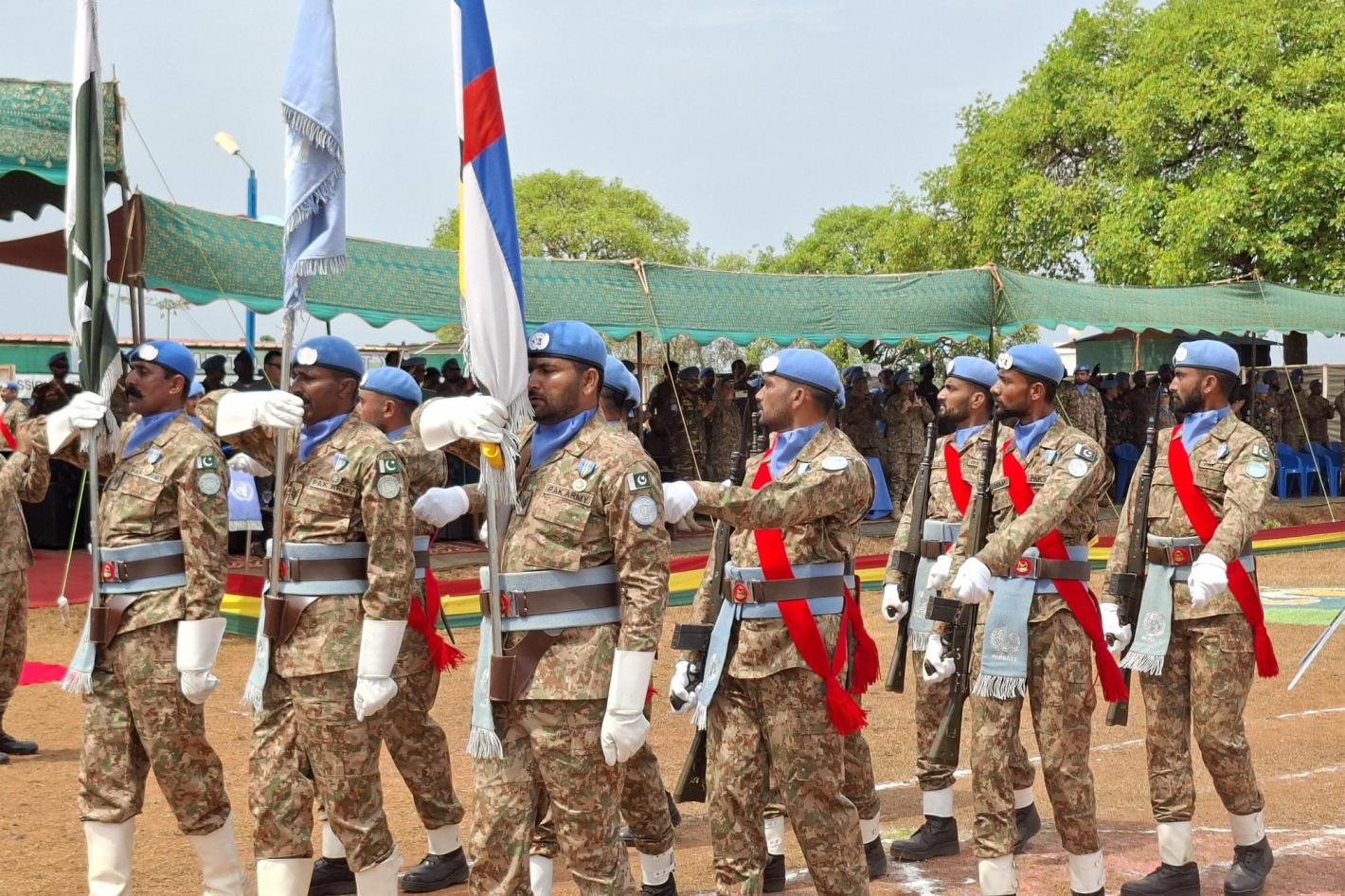GENEVA (26 March 2020) – The Central African Republic (CAR) is struck by the COVID-19 pandemic and is heading towards a certain health disaster if hostilities do not stop immediately, said Yao Agbetse, UN Independent Expert on the situation of human rights in CAR.
“I call for an immediate halt to attacks by armed groups in order to create an environment conducive to a stronger national mobilization against COVID-19. All the energies of the country must be channelled towards the collective fight against the pandemic.
“I urge the Central African Government to continue implementing the measures it adopted to limit the spread of COVID-19, and to ensure that they are respected throughout the national territory in accordance with fundamental principles of human rights, including those related to public health, which require proportionate, necessary and non-discriminatory actions.
“I urge the Government to continue implementing its commitments made under the February 2009 Peace Agreement and to accelerate the implementation of transitional justice mechanisms. The Government must restore State authority, including through the redeployment of health services and workers in areas still under the control of armed groups.
“I call on the armed groups to immediately cease all attacks on the civilian population, State officials and soldiers of the United Nations Multidimensional Integrated Mission in CAR (MINUSCA). Any obstacle to humanitarian operations must be lifted.
“Armed groups must leave public buildings, including the health centers they continue to occupy, and must contribute to ensuring that the COVID-19 measures adopted by the Government are implemented in the areas they control.
“I call on the guarantors of the Peace Agreement (African Union and ECCAS) to mobilize the neighbouring countries at the highest level to ensure that the commitments made by the armed groups are upheld. The article 35 of the Peace Agreement, which provides for punitive measures against signatories who do not respect their commitments, must be activated.
“Finally, I ask the international community to continue and strengthen its support to the Central African Government in its efforts to combat COVID-19. The international community must help enforce the immediate cessation of hostilities by armed groups, including through the implementation of article 35 of the Peace Agreement.
“I welcome the measures adopted by the Government against COVID-19. But these measures cannot be disseminated and respected over most of the national territory occupied by armed groups without the strong involvement of the leaders of those groups. The observance of these measures, including barrier gestures and physical distancing, is jeopardized in a conflict involving displacements of populations fleeing the attacks.
“Unless the hostilities end immediately, according to the commitments made by the armed groups under the Peace Agreement signed on 6 February 2019, the Central African Republic is heading toward a certain health disaster.”
ENDS
Mr. Yao Agbetse (Togo) is a human rights lawyer, researcher and teacher who has devoted the last 25 years of his life to justice and human rights, including the rights of the child. It has implemented human rights programs at the national level and has provided legal and technical advice for the development and monitoring of national human rights laws and policies, particularly in Benin, Côte d 'Ivoire, in the Democratic Republic of Congo, Mali and Togo. It has created a space and tools for dialogue and joint efforts by state actors and CSOs. In the DRC, Côte d'Ivoire and Mali, it has implemented DDR programs, trained army and police chiefs, and provided support to mandate-holders and United Nations operations, including participating in the interactive dialogue under item 10 during sessions of the Human Rights Council in Geneva. It provided first-hand, factual and reliable information to UN experts to help them assess human rights challenges in different countries and made specific and workable recommendations to ensure accountability and access to Justice.
The mandate of the Independent Expert on the situation of human rights in the Central African Republic was established by the Human Rights Council on 27 September 2013.
Independent Experts are part of what is known as the Special Procedures of the Human Rights Council. Special Procedures, the largest body of independent experts in the UN Human Rights system, is the general name of the Council’s independent fact-finding and monitoring mechanisms. Special Procedures mandate-holders are independent human rights experts appointed by the Human Rights Council to address either specific country situations or thematic issues in all parts of the world. They are not UN staff and are independent from any government or organization. They serve in their individual capacity and do not receive a salary for their work.
UN Human Rights, country page – Central African Republic
For more information and media requests, please contact: Isatou Harris (+41 22 928 9422 / iharris@ohchr.org) or write to ie-car@ohchr.org
For media inquiries related to other UN independent experts: Xabier Celaya (+41 22 917 9445 / mediaconsultant2@ohchr.org)





